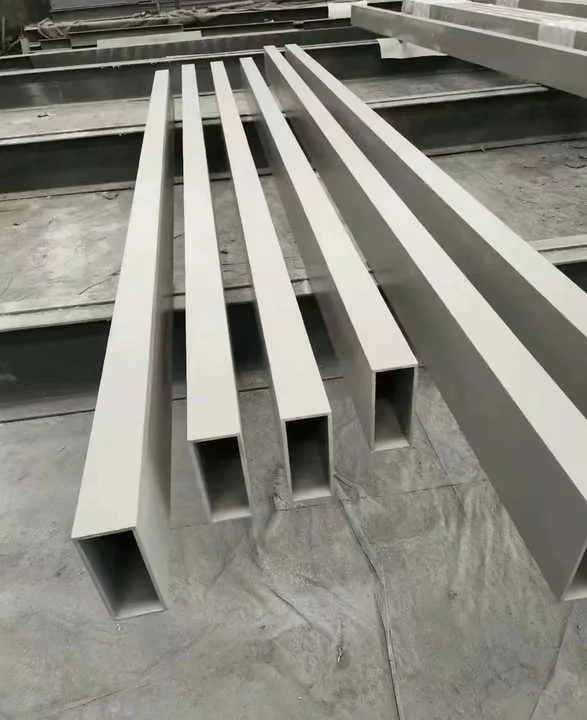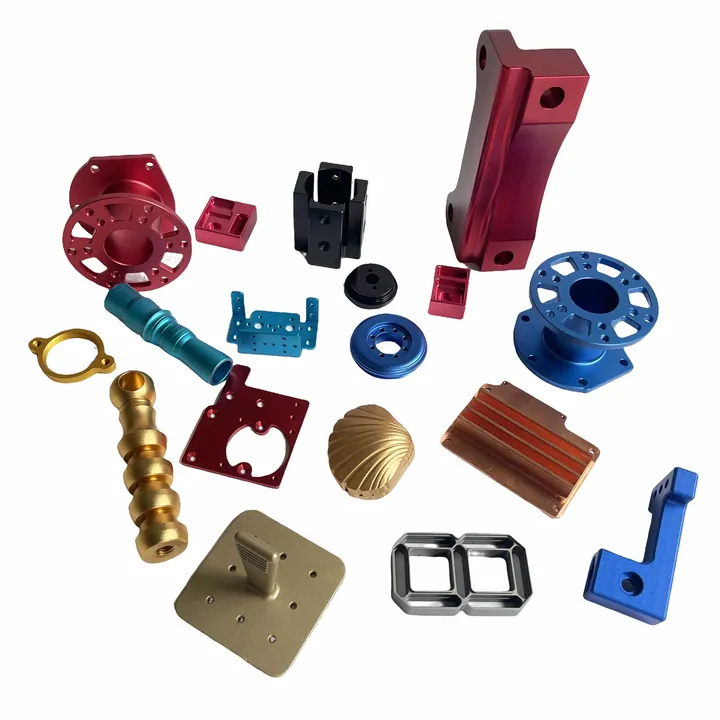How to Prevent Galvanic Corrosion Between Aluminum and Stainless Steel?

When aluminum and stainless steel touch, corrosion can start silently. Left unchecked, it damages parts, weakens joints, and increases maintenance costs.
You can prevent galvanic corrosion between aluminum and stainless steel by isolating the metals with non-conductive materials, coatings, or proper design.
Mixing metals without planning leads to expensive repairs. But with the right steps, you can use both materials together safely. Let’s explore how.
What materials can isolate aluminum from stainless steel?
Many engineers overlook this step. But proper isolation is the most effective way to stop galvanic corrosion between aluminum and stainless steel.
You can isolate aluminum from stainless steel using plastic washers, rubber gaskets, nylon bushings, or painted surfaces that break the electrical path.

Galvanic corrosion happens when two different metals touch in the presence of an electrolyte like water. One metal becomes the anode (corrodes), the other the cathode. Aluminum is the anode in this pair, meaning it will degrade faster.
Common Isolation Materials
| Isolation Material | Where to Use | Notes |
|---|---|---|
| Nylon washers | Between bolts and aluminum surfaces | Low-cost, easy to install |
| Rubber gaskets | Between flanges, panels | Also provides vibration damping |
| Plastic sleeves | Around bolts or inside holes | Fully insulates bolts from structure |
| Powder coatings | On aluminum parts | Avoids direct contact, needs inspection |
| Fiber or felt pads | In temporary setups | Not suitable for high-load areas |
These materials block the electrical current. No current = no galvanic reaction. Always ensure complete separation, not just surface-level protection.
Galvanic corrosion requires metal contact and an electrolyte to occur.True
Both electrical contact and the presence of moisture or an electrolyte are needed for galvanic corrosion to happen.
Simply placing aluminum next to stainless steel with no contact will cause corrosion.False
Corrosion needs direct metal contact and moisture to trigger a galvanic reaction.
Do dielectric coatings prevent galvanic corrosion?
A quick coating seems simple, but does it really stop corrosion between dissimilar metals?
Yes, dielectric coatings prevent galvanic corrosion by creating an insulating layer that blocks electrical flow between aluminum and stainless steel.

Dielectric coatings are non-conductive paints or films. They act like barriers between two different metals. These coatings stop the flow of electrons, which stops the corrosion reaction.
Common types include epoxy, polyurethane, and powder coatings. These are especially useful in marine or outdoor environments where moisture is always present.
Coating Types That Help Prevent Galvanic Corrosion
| Coating Type | Benefits | Lifespan (estimated) |
|---|---|---|
| Epoxy | Tough, chemical resistant | 8–10 years |
| Polyurethane | UV resistant, flexible | 6–8 years |
| Powder Coating | Durable, wide color options | 10–15 years |
| Zinc-Rich Primer | Sacrificial protection for steel | 5–8 years |
However, coatings must be continuous. If the coating is scratched or wears off, corrosion can start underneath. Always inspect coated parts regularly.
Dielectric coatings are effective because they stop metal-to-metal contact and current flow.True
They insulate the metals, breaking the electrical path needed for corrosion to occur.
Dielectric coatings work even when applied to only one of the two metals.False
Both metal surfaces must be isolated to fully stop galvanic corrosion. One-sided coating still allows current flow.
How to select fasteners to avoid corrosion?
Fasteners often get ignored, yet they are the most common failure points in mixed-metal designs.
To avoid corrosion, choose fasteners made of compatible metals or isolate them with washers, sleeves, or special coatings.

Using stainless steel bolts on aluminum sounds strong—but it creates a galvanic couple. Over time, the aluminum corrodes around the fastener. That weakens the joint and makes removal hard.
Recommended Fastener Choices for Aluminum Structures
| Fastener Type | Notes | Corrosion Risk |
|---|---|---|
| Aluminum fasteners | Same metal, no galvanic effect | Very low |
| Coated stainless steel | With insulation or plating | Low |
| Zinc-coated steel | Sacrificial protection, wears over time | Moderate |
| Stainless steel + nylon washers | Strong and insulated | Low |
If you must use stainless steel bolts, combine them with plastic or nylon washers and sleeves. These prevent direct contact. Also consider applying anti-corrosion paste or grease during assembly.
Using stainless steel bolts on aluminum always prevents corrosion due to their durability.False
Stainless bolts can cause aluminum to corrode faster due to galvanic reaction unless isolated.
Aluminum fasteners are the best choice to avoid galvanic corrosion with aluminum parts.True
Same-metal fasteners avoid the galvanic potential difference that causes corrosion.
Is electrical insulation necessary to stop reactions?
It’s not just about the metals—it’s about how electrons move between them. Without a complete circuit, corrosion won’t start.
Yes, electrical insulation is necessary to stop galvanic corrosion because it breaks the circuit between dissimilar metals.

Galvanic corrosion acts like a tiny battery. The metal pair creates voltage. Moisture or another electrolyte connects them. Electrons flow, and aluminum dissolves.
You can block this by interrupting the path:
- Use plastic gaskets or sleeves.
- Apply full-surface coatings.
- Avoid design traps that collect water.
- Use isolating brackets or mountings.
Electrical Insulation Checklist
| Action Step | Purpose |
|---|---|
| Add rubber or plastic washers | Stops direct electrical contact |
| Paint contact surfaces | Insulates metal from each other |
| Design for drainage | Keeps joints dry and electrolyte-free |
| Use dielectric paste | Blocks moisture in fastener threads |
Even grounding the system doesn’t help if two dissimilar metals are directly touching. Insulation must be physical and total.
Electrical insulation prevents corrosion by stopping electron flow between metals.True
Without a conductive path, galvanic corrosion cannot occur even if moisture is present.
Grounding the metal structure is enough to stop galvanic corrosion.False
Grounding does not prevent galvanic corrosion; you must break the circuit with insulation.
Conclusion
Galvanic corrosion between aluminum and stainless steel is preventable. Isolate the metals, coat surfaces, choose the right fasteners, and stop current flow with proper insulation. With the right steps, you can combine these materials safely and effectively.



